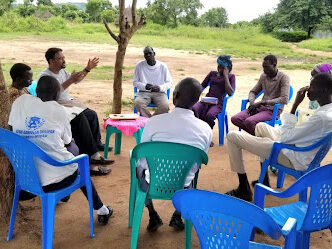A Case for Business Training
The shift of mission leadership from the West to nationals leading mission efforts in their own countries is a sea change in how we view global missions today. What once was largely a Western missions movement is now a global movement. God has been raising up dedicated and capable national leaders in the most unchurched regions of the world to lead the charge in establishing the gospel in those places. Indeed, the Great Commission will be completed through them because they have the calling, dedication, perseverance, and global distribution to establish churches and make disciples in the last and most challenging places.
Filling a Gap for Greater Impact
These nationally led organizations have proven success. They know how to share the gospel and make disciples. They know how to start churches in difficult places. They know how to equip believers to grow in their faith as life-long disciples. We in the West don’t need to teach them anything about that. Indeed, we can learn a lot from them. But their results are on a restrained scale because they lack a few critical resources and managerial expertise to make a more extensive impact.
It’s no surprise that many national mission leaders lack business training. Their education is lived experience gained in the trenches working to establish the gospel in very challenging places. Their sacrifice and persistence is paying off. They are successful. But in most cases they could be far more successful if they had a better understanding of some basic business skills that would propel their mission enterprise. As one church planting director put it,
“We are focusing on church planting movements in 9 districts through our local church planters and many lay leaders as they seek to be mentored and coached by our staff. To see things move with greater effectiveness, it’s very important to equip and develop staff and leadership with some basic organization skills for greater impact. We now understand how critical that is to growth.”
After a training workshop conducted by Global Assist, a national leader expressed how dysfunctional their team had been. He said clarifying roles and responsibilities enables them to accelerate the work.
Six Things That Can Propel Growth
At Global Assist, we’ve discovered six things that can propel a ministry in easy to replicate ways.
1. Leadership Development
There is no shortage of people who feel called to serve in their local mission effort. Organizations can easily add people to their ranks, yet they quickly reach a point when they need more coaches and trainers to develop new people joining their ranks. Therefore, developing new leaders is essential to growth.
2. Media Development
Leveraging media to communicate, report, and promote a mission effort can help propel a ministry. Many leaders are not aware of the sorts of media tools they could use and how they could use them, so training in this area is important.
3. Ministry Management System
As a ministry grows larger, so does the complexity of their operation. Keeping track of people, projects, finances, outputs, and impact reporting requires a ministry management tool that serves their needs best. This provides mission clarity which helps to avoid confusion, redundancy and waste.
4. Content and Training Guides
An effective ministry knows their strategy well. They’ve developed it over time. They know what works and what doesn’t. As an organization adds new staff, it is critical that they understand the strategy and how to implement it well. So developing content and producing training guides keeps the organization on track and avoids mission drift. Everyone is on the same page as the mission moves forward.
5. Financial Development
Funding is a major need for these nationally led ministries. Developing fundraising skills locally and globally is important. And when the funds start to come in, accounting and reporting responsibilities grow in proportion. Financially well managed ministries attract more giving.
6. Customized Training
Each ministry has their own unique skills and weaknesses. The five areas listed are things that most organizations need to learn. But there are usually other training needs unique to their situations, so Global Assist helps to identify and address those training needs too.
Walking with the Team
There are business and leadership training organizations that show up, put on a workshop, and then leave. Global Assist has learned that just imparting information is not enough. People need to be able to interact with their trainers as they apply their new skills. Because of this, Global Assist continues walking with our partners until they reach a place of self-sufficiency where they can proceed as a sustainable movement.
An Important Role for Western Missions
When the church in the West comes to realize they no longer need to send missionary leaders to establish the gospel in other places, they may think they don’t have a role in completing the Great Commission. Global Assist says, not so! Finishing the mission task is still the responsibility of the church everywhere, including the West. Global Assist and our funding partners play a key role in helping to finish the task, because propelling highly effective nationally led ministries will produce more gospel saturation and accelerate the completion of the Great Commission. Business and leadership training in combination with funding nationally led ministries are ways the West can remain vitally engaged in global missions.
_________________________________
About the Author
Dr. Jim Kirchner is the President of Global Assist
© Moving Missions 2023

